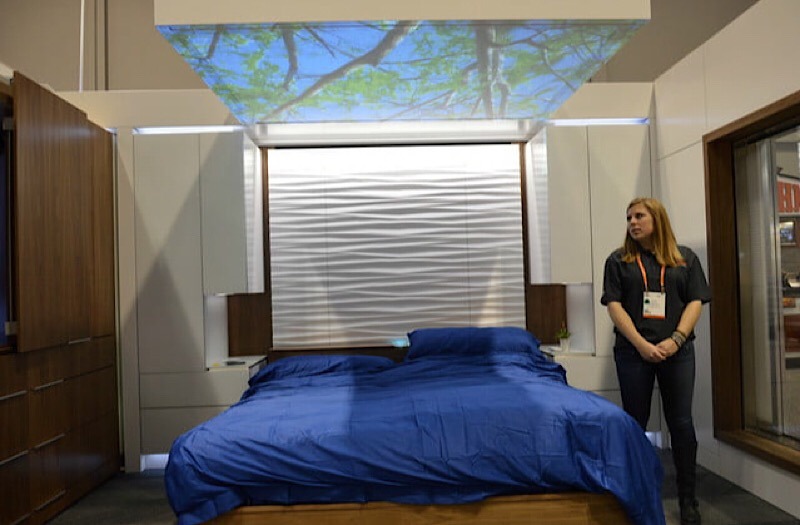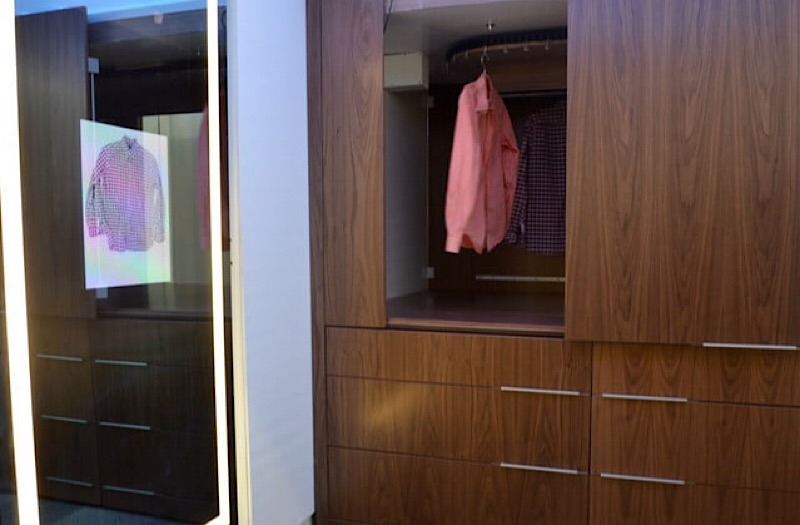
As we explore this new, very large world of the Internet of Things, one of the central themes is devices in the smart home. But the winner of the Solar Decathlon in Dubai, United Arab Emirates, is about the structure itself as a smart home, what’s been named FutureHAUS.
FutureHAUS Smart Home
The students at Virginia Tech’s School of Architecture + Design created FutureHAUS, a home you can assemble on your property. It’s built with separate modules that comprise the different areas of the home.
Each module, or what they call a “cartridge,” on the house has a hinge that allows it to fold up. Three cartridges can fit on an 18-wheeler. They fit together structurally and are synched. Visiting professor Clive Vorster says the “goal is to eliminate buttons.”
As you walk from room to room in the 900-square-feet house, the light will follow you because of sensors placed around the rooms and in the furniture. This eliminates the need for light switches.
There are no power outlets either, since it runs on solar power with 50 solar panels. You can charge your phone with inductive charging built into the table. The Gorilla glass wall panels hide transducers that generate sound, eliminating the need for speakers.

Your side of the bed adjusts to your comfort level while the other side is adjusted to your significant other. Above the bed is a panel that can operate as either a TV screen or light, which adjusts to whatever you’re watching.
Fashionistas will enjoy the screen on the wall that allows you to choose the day’s outfit. Software will activate a carousel in your closet that will bring your outfit to you.
But this is where your home changes to suit your needs. Push the wall away to hide the dressing room and washer and dryer, and the bed folds up. The room is now a workspace with a sit-stand desk and a touchscreen conference table.
Sensors adjust the surroundings based on different factors that include voice, gesture, and proximity, along with fingerprint ID and facial recognition. Kitchen cabinets, bathroom vanities, and toilets are raised and lowered per individual need.
Solar Decathlon
The Solar Decathlon Middle East is an international competition in Dubai. The U.S. Department of Energy created the competition where universities across the world meet up to design, build, and operate a grid-connected solar-powered house.
The team from Virginia won the contest with FutureHAUS and earned a prize that is equivalent to nearly $250,000.

Two dozen students and faculty from the Virginia school spent more than a month in the desert near Dubai putting the house together. Entrants were required to use solar energy as the only energy source and permit maximum energy efficiency through technology.
“We have the most interdisciplinary team that we’ve ever had around any research project, and that’s what it takes. That’s the secret,” explained Joe Wheeler, architecture professor and faculty lead. “That’s the formula to making something this amazing.”
Furthermore
Eight years ago Wheeler won accolades for his design of an earlier project, Lumenhaus. It won the 2010 Solar Decathlon as well as praise from the American Institute of Architects.
FutureHAUS could be our home of the future. Not only is it a smart home, but it is also powered solely by solar energy. And it’s something you can take with you, albeit on 18-wheelers and reconstructed at a different location.
Do you think FutureHAUS is our house of the future? Leave your thoughts in the comments section and let us know.
Image Credit: Jenny McGrath with Digital Trends







